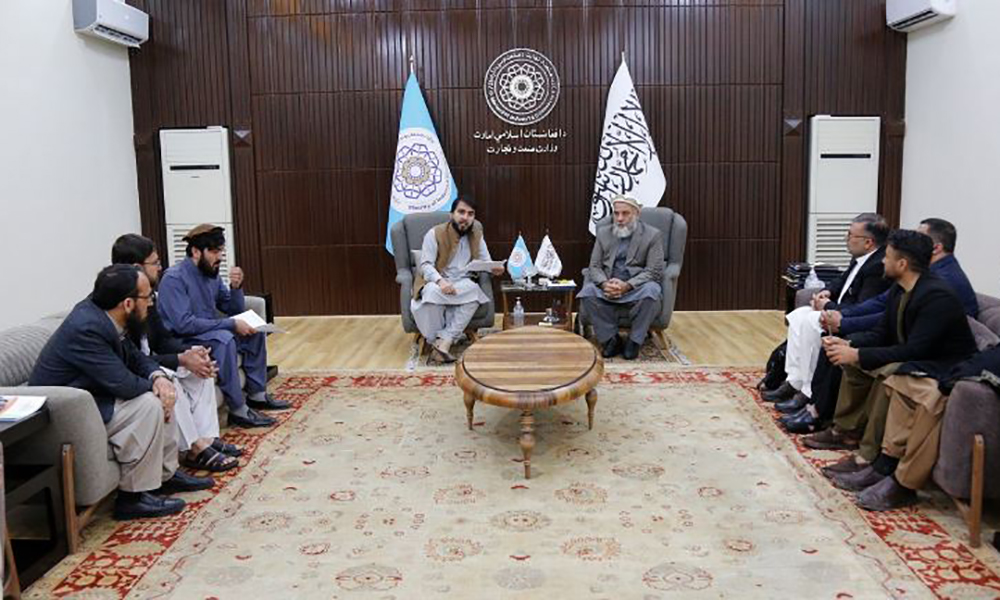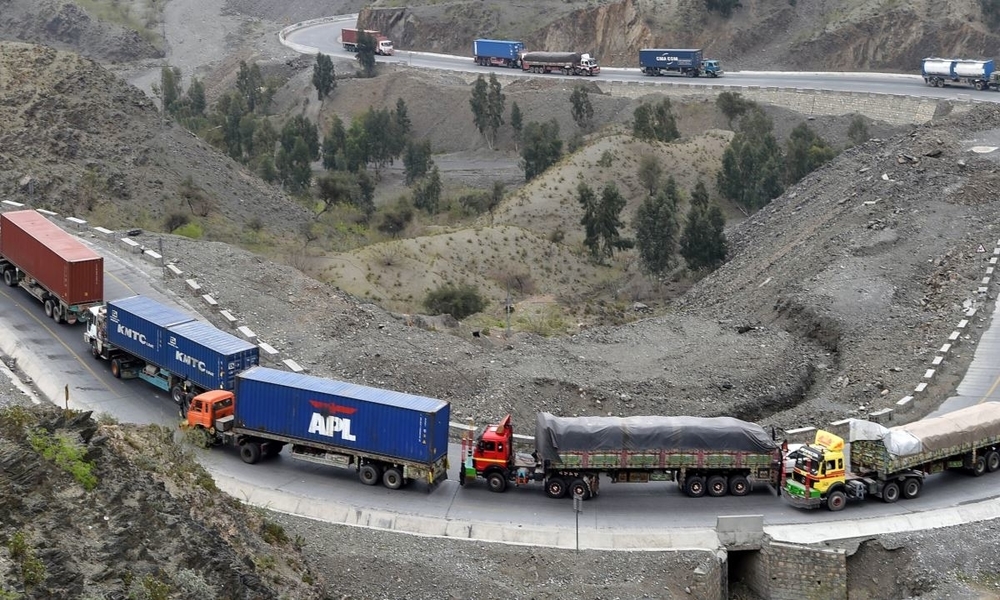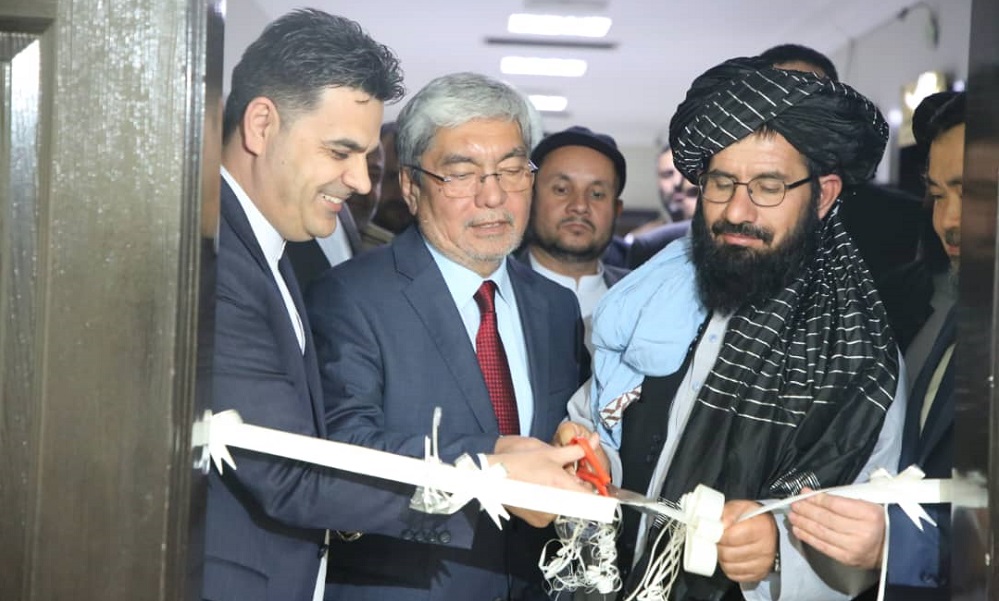Business
World Bank survey finds Afghan firms still face ‘daunting challenges’

The World Bank said Monday many businesses in Afghanistan are adjusting to the new business environment but most still face daunting challenges.
The World Bank’s second private sector survey, published Monday, was conducted in May and June 2022.
The Private Sector Rapid Survey (PSRS) Round 2 assessed the status, constraints, and investment outlook of businesses, and the impacts of the ongoing economic challenges faced by private sector firms in Afghanistan.
“Afghanistan continues to face enormous social and economic challenges that are impacting heavily on the welfare of its people, especially women, girls, and minorities.
“The new survey confirms the resilience of Afghanistan’s private sector, which can play a key role in the economic recovery of the country and improving the lives of all Afghans,” said Melinda Good, World Bank Country Director for Afghanistan.
“It also shows that firms continue to suffer from impacts of political uncertainty and policy fragmentation, Afghanistan’s isolation from the international financial sector, and reductions in international assistance,” she said.
More than three-fourths of firms surveyed in Round 2 are operational, compared to two-thirds in Round 1, conducted in October and November last year.
However, most are operating significantly below their full capacity and are only considered partially open, the World Bank stated. Consumer demand appears to have slightly improved in past months but remains considerably lower than before August 2021.
Employment remained around 50 percent lower, on average, than before August 2021, compared to 61 percent lower in Round 1 of the survey.
Women-owned businesses are most affected by restrictions on women’s mobility, resulting in disproportionate revenue and job losses, World Bank stated.
Female employment remains 62 percent lower than before August 2021, while it was 75 percent lower in November 2021.
In addition to this, the World Bank found that businesses continue to be negatively impacted by the loss of international banking relationships, which has disrupted international payments and limited access to bank accounts and formal banking.
“Firms are resorting to the use of informal money transfer systems for domestic payments,” the bank stated.
Despite some businesses hiring employees, the majority of respondents have coped with these challenges by laying off employees, shifting to cash and informal payment channels, shrinking investments, and lowering staff salaries, World Bank reported.
“Action is required by the authorities to unlock possibilities for much-needed international economic integration and domestic opportunities for Afghanistan’s private sector,” said Good.
“This includes increased transparency in public finances and reestablishing central bank independence. With measures like these and continued resilience of businesses, a sustainable private sector-led recovery is possible.”
Business
Commerce ministry inks 10 MoUs to boost development of small and medium-sized businesses

The Ministry of Commerce and Industry said Thursday it has signed cooperation agreements with ten institutions to support the development of small and medium-sized enterprises.
Nooruddin Azizi, Acting Minister of Commerce and Industry, said: “In the implementation of projects, we must pay special attention to our activities and actions and try to make useful use of the projects according to the requirements and benefit the beneficiaries.”
These ten institutions are to present their projects, the total value of which is around over $1.1 million. The projects will be carried out in Kabul, Baghlan, Ghor, Herat, Logar, Nangarhar, Balkh, Badakhshan and Jawzjan provinces and provide direct jobs for about 1,000.
To date, the ministry has signed MoUs for 72 projects in total, collectively valued at about $53.6 million.
These agreements have been signed with domestic and foreign companies for the establishment of small and medium-sized businesses.
In accordance with the principles and laws of the Islamic Emirate and prioritizing the implementation of projects for immigrants and returnees and internally displaced people, the ministry said 635,865 people will benefit through jobs directly and over 4.3 million will benefit indirectly in 25 provinces once these projects are implemented.
Business
Export volume totals over $140 million in last month of 1402

The National Statistics and Information Authority (NSIA) confirmed Tuesday that in the last month of solar year 1402, (March 2024) Afghanistan’s exports totaled $141.1 million and imports totaled $789.6 million.
This was down from $174 million for exports in the same period in 1401. However, imports increased by $99.2 million in 1402, up from $690.4 million.
Most exports in the last month of 1402 went to Pakistan, India and the United Arab Emirates, while in the last month of 1401 exports went to Pakistan, India and China.
Business
Afghanistan-Kazakhstan chamber of commerce opens in Herat

The Ministry of Interior said the governor of Herat province Islam Jar met with Alim Khan Yasin Gildaye, Ambassador of Kazakhstan to Afghanistan, to discuss various issues around trade.
According to the ministry, the two sides discussed the expansion of trade facilities, increasing the volume of trade exchanges between traders of the two countries, reducing customs tariffs, solving the challenges of traders and issuing visas to them.
The Afghanistan-Kazakhstan Chamber of Commerce has been opened in Herat in order to facilitate and increase trade between the two countries.
-

 Sport4 days ago
Sport4 days agoACL fever grows as fixtures finalized
-

 World4 days ago
World4 days agoUS will not take part in any Israeli retaliatory action against Iran
-

 Latest News4 days ago
Latest News4 days agoOver 50 people dead in traffic accidents over Eid
-

 Latest News4 days ago
Latest News4 days agoUS identifies Kabul airport suicide bomber
-

 Latest News4 days ago
Latest News4 days agoGood rains enable DABS to increase power production in Kabul
-

 Business4 days ago
Business4 days agoAfghanistan-Kazakhstan chamber of commerce opens in Herat
-

 World3 days ago
World3 days agoIsraeli military vows response to Iran attack as calls for restraint mount
-

 Latest News3 days ago
Latest News3 days agoPakistani police give Afghans in Balochistan one day to leave
























